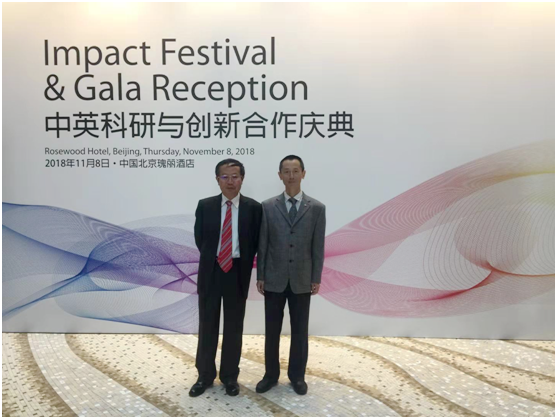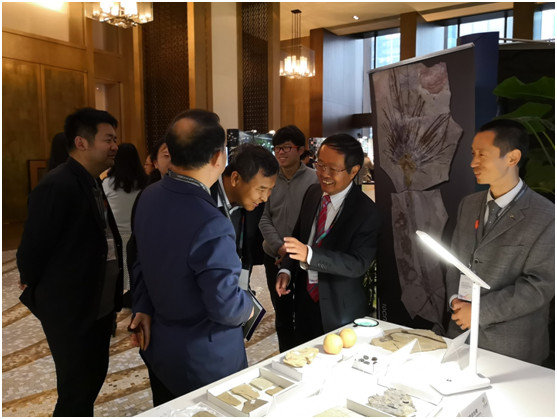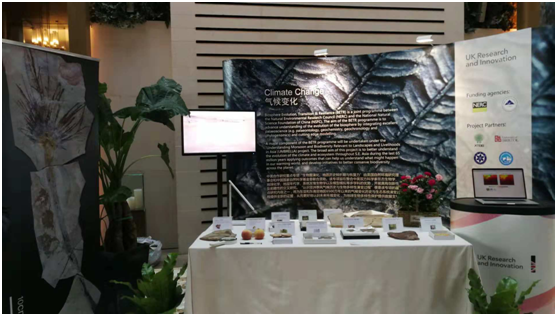UK Research and Innovation (UKRI) celebrated its China launch in November in Beijing covering the breadth of UKRI’s activities and objectives. The event demonstrated the impact and breadth of research and innovation collaboration between the UK and China. It was attended by over 250 senior government officials, academics, policy makers, and businesses from both nations.
The UK Research and Innovation Impact Festival showcased innovative technology developed through the £275 million UKRI collaborative portfolio with China, including fossil plants, satellite and wireless sensors, virtual and augmented reality, medical and rehabilitation robots and 3D models of drug-resistant bacteria.
As the only invited program in the field of Geosciences, Prof. Zhou Zhekun and Dr. Su Tao of Xishuangbanna Tropical Botanical Garden (XTBG) were invited to present their progress on UK-XTBG project “The evolution of vegetation and biodiversity change during the Paleogene and early Neogene”.
The project is part of Biosphere Evolution, Transitions & Resilience (BETR), a joint program between the Natural Environmental Research Council (NERC) and the National Natural Science Foundation of China (NSFC).
“The aim of the BETR program is to advance understanding of the evolution of the biosphere by integrating excellent palaeoscience (e.g. palaeontology, geochemistry, geochronology and phylogenomics) and cutting edge modelling”, said Dr. Su Tao.
A major component of the BETR program will be undertaken under the ‘Understanding Monsoon and Biodiversity Relevant to Landscapes and Livelihoods in Asia’ (UMBRELLA) project.
“Broadly speaking, our project aims to better understand the evolution of the climate and ecosystem throughout S.E. Asia during the last 65 million years”, said Prof. Zhou Zhekun.

Prof. Zhou Zhekun and Dr. Su Tao at the event.

Prof. Zhou Zhekun introduces plant fossils to the participants.

XTBG poster
RELATED
XTBG supported by joint fund of NSFC and NERC



